Project 1 Final
By: Carly Cornish
DynamicU App
Social Media nowadays has many problems, scientists are finding that it’s incredibly addictive and socially isolating. Even though our world is more connected than ever in human history, we have a world where we’re losing personal intimacy. This loss of connections is creating an atmosphere that is filled with depression, stress, and anxiety. Two hundred and ten million people are estimated to be addicted to the internet and social media (Mediakix). In America, Pew Research learned that 74% of Americans use Facebook daily, 61% use Snapchat every day, 63% for Instagram and the list goes on (Pew Research). These numbers are rising at alarming rates, more and more people are reporting being unhappy, feeling isolated in a room of people or just socially unable to form a connection. As a temporary fix, we got to social media, the drug dealer of our dopamine addictions, that leave people feeling hollow, after the effects of the dopamine hit have disappeared.
I myself haven’t been dragged in as deep as others. Some aspects about me and how my family raised me has saved me from the feeling of being worthless without the “hearts” and “likes” of others. But, this isn’t the same for everyone, some people rely solely on this form of validation. There are many factors that affect other people and their usage of social media, including age, gender, economic status, race, education, and community. When comparing gender, about 78% of women in America use social media or the internet compared to 65% (Pew Research). Sixty-four percent of people with a high school level education use the internet compared to 79% of college graduates (Pew Research). When it comes to people my age, 90% of Americans form the age of 18-29 use social media or the internet, with the age group of 30-49 not far behind at 82% (Pew Research). All these numbers may not seem to matter, but they do, these are all factors that help to see who is the most at risk, those that use it most. These factors tell a story about the person, a very simplified story, but a story nonetheless.
The fact that social media affects a person’s mental health is not a very good thing, let alone with all the negative things it’s spewing or facilitating, including cyberbullying and internet trolls. As I said before people are becoming more socially isolated, which causes depression, anxiety, and stress. This becomes worse when some are bullied or when their self-esteem is already so low, that with a simple rude comment they fall apart. Yes, there are certain factors that make some people more likely to use social media and therefore get addicted, but it is a universal aspect of our lives. From personal experience, I notice that I check my phone all the time, especially when I’m bored or trying to procrastinate. It often rips me out of the right headspace to do homework, and I quickly lose focus. I’ve also noticed it with my mother, she claims I’m addicted to my phone but when we talk at the dinner table I always put my phone down, and have direct eye contact with her. I was taught that this was a sign of respect, however, she’s doing the opposite now. Even as I tell her about my day or ask her questions she’ll be on her phone, and I need to remind her that I’m talking and I’d like to be shown respect as she did many years ago.
I would like to design an app, that helps to solve these problems, procrastination and social isolation. I’m not redesigning any specific social media platform, I’m simply taking the parts that I believe are good and implementing them into a new one that will be more beneficial for the user. My design name is DynamicU, the reason I named it this, is because every person is different, we all have aspects of ourselves that are different from others. Due to this fact, programs, ideas of methods to help with a problem for one person might not help another person. Not only is a person, or a group of people dynamic, the app that helps them must be too. Society acts as if there is a one-time solution for everyone which is not the case, so why not create an app that relies on the user for input to help them? There are many problems that people face including procrastination, lack of motivation or inspiration, health problems whether mental, physical emotional or spiritual. When the user initially downloads the app, the first time they open it, they’ll have to take a quiz, and communicate with their personal A.I. Dyna who will determine what the user wants and needs out of the app. Once the person has answered the questions, the Dyna will configure a page that will take care of as many needs as possible based on how the user answered. She will continue to be active throughout the use of the app, not just the initiation.
Take procrastination, for example, if I take away the things I use to distract myself, a.k.a my phone, and social media, I’ll often get more done in a shorter time frame. Procrastination is actually tied to a feeling of identity (Pychyl). If a person has a better sense of themselves, their place in the world, the less likely they are to procrastinate. However, social media hammers away at our sense of self, it constantly bombards us with ideas of what and who we should be. When we are ourselves often it retaliates against us in the form of bullying or the internet trolls, but if we give in to the dopamine addiction and indoctrination, we are left alone. So to solve this problem of not knowing oneself, and using social media as a distraction and a crutch from reality, DynamicU will take away the crutch. If the user gives permission, they will be locked out of social media platforms for a certain amount of time, forcing them to focus purely on themselves, or on their work. An even more extreme way of doing this is having the app know what needs to be done, by consent of the user, and not letting them get full access until they’ve finished a certain amount of assignments or projects. Of course, the user will be able to access certain parts of their phone or other devices, for the use of homework, or communication in emergencies. There also might be a few breaks here and there for the user, but they will be timed, and the user will be locked out again after the timer ends. This may not completely stop a person from procrastinating because procrastination doesn’t just come from social media, it can come from friends, movies, family, work, etc. However, it could help people like me who often have a hard time or sitting down and getting work done, unless we have little ot no time to get it done.
If someone needs a community, the app could ask some further questions such as “What type of community are you looking for”?. This could help narrow down the search, to get the user more quickly acquainted with the said community and the people in it. For example, there are considered 5 different types of communities. Interest communities, where people share a common interest or passion. Action communities, where the group tries to bring out a change in the world, their nation, state or even a small town, it doesn’t matter. Place communities, a community of people brought together by geographic boundaries. Practice communities, a community that is in the same field/study/profession or that partakes in similar activities or hobbies. Lastly, circumstance communities, where people are brought together by circumstances or external events, whether positive or negative (Millington). The factors of a person’s life can change which community they would best connect with, so telling someone to find a group they like isn’t much of a solution.
This app has many positive opportunities, to better people’s lives. When I compare the Design Guide for HumaneTech, some of their human sensitivities can be positively affected. For example, for emotional sensitivity, the app will have a calming effect, by using sounds, colors, and voices that create a feeling of harmony in the user. This may be more of a physical pro, but the phone will change it’s coloring at certain times of day to best inspire the person, and at night limit blue light to help the user fall asleep faster and have a more restful night. Attaching this to the idea of procrastination, it could also set a timer for what time is reasonable to go to be, like give a warning that the person has a half-hour left of screen time before they should be going to sleep. This could be bypassed if needed, for schoolwork or other late-night activities.
For attention, helping with procrastination will help the user get more work done, have more time for things they enjoy and it could help them train themselves to become more productive. The app isn’t meant to be a crutch, hopefully, it will not be used as much later on unless for more positive things, like a reminder to get a restful light of sleep, or a little help every so often. If the user chooses to work on their mental, spiritual or emotional health the app could help them learn things like yoga, or meditation to help them calm down, and focus on the now.
When it comes to decision making, the app if moving the user away from the manipulation and negative influence of social media by bringing them to focus on themselves. The app will encourage them to be themselves, to find who they want to be, and not what others demand them to be. If this app has as much of s strong effect I hope it will, then the person’s ability to make their own decisions will have increased. They won’t be waiting for the next celebrity, a politician or a friend to tell them what to do or say.
When it comes to group dynamics, the app will help to bring people together, but the idea of the different types of communities and what brings them together. This could be a similar design to Facebook groups, where the posts are shared advice and support is given, etc. I’d like for the app to make it more personal though like it sponsors an event every month in different areas to help these people meet face to face. It encourages others to seek other communities and groups, instead of just stopping at Facetime or messenger, it could try and help people that are closer to one another geographically to meet.
Another aspect I’d like to implement is it interacts with the user, throughout this entire process, not just through the quiz and the formatting of the page. Dyna the personal A.I. will always be there if needed, she will help in situations such as emergencies, whether car accidents or falls. She could notify authorities or family members if the user is in an accident or a more personal approach like if the person is stressed or having a panic attack. If the user has an attack of some sort they could tell her, or she could tell by their heartbeat, whichever the user prefers, based on their idea of needed privacy. For example, if I were to use DynamicU and I had a panic attack, depending on the severity, I would want someone I love and trust to come and help me. In order to achieve this, I can set a specific number of people as emergency contacts, which will be contacted by Dyna at the appropriate time. So if I’m having a panic attack and I want help, I can let Dyna know, and she can contact my emergency contact and fill them in on the situation. If help is needed where I am, then she can give them precise coordinates or directions to get there. This I feel like would help a lot of people, they wouldn’t have to suffer in silence, unable to contact their loved ones, Dyna, DynamicU’s personal A.I. can do it for them.
Ultimately the app, would and could affect many aspects of the user’s life, with their permission first, the terms and conditions will not be put in such a way that the user doesn’t know what they’re getting into. If they choose to stop at any time, they can, and may delete the app, with that their information if they wish will be erased. If not, they can opt into putting toward better research for the app to help others.
Works Cited
“Demographics of Social Media Users and Adoption in the United States.” Pew Research Center: Internet, Science & Tech, Pew Research, 12 June 2019, www.pewinternet.org/fact-sheet/social-media/.
Hurley, Kate. “Social Media and Teens: How Does Social Media Affect Mental Health?” Psycom.net – Mental Health Treatment Resource Since 1986, Psycom.net, 27 Mar. 2019, www.psycom.net/social-media-teen-mental-health.
Millington, Richard. “Different Types Of Communities.” FeverBee, FeverBee, 5 Sept. 2016, www.feverbee.com/different-types-of-communities/.
“The 8 Social Media Addiction Statistics Everyone Needs To See.” Mediakix, MediaKix, 7 Aug. 2019, mediakix.com/blog/social-media-addiction-statistics/.
Pychyl, Timothy A. “Teenagers, Identity Crises & Procrastination.” Psychology Today, Sussex Publishers, 13 Apr. 2008, www.psychologytoday.com/us/blog/dont-delay/200804/teenagers-identity-crises-procrastination.
Walton, Alice G. “6 Ways Social Media Affects Our Mental Health.” Forbes, Forbes Magazine, 3 Oct. 2017, www.forbes.com/sites/alicegwalton/2017/06/30/a-run-down-of-social-medias-effects-on-our-mental-health/#2c1b52012e5a.
Opening Page of App:

Quiz/Questionnaire:
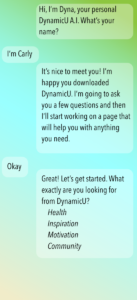
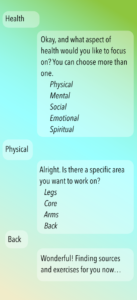
Some Results:
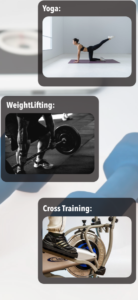
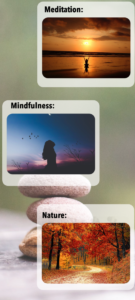
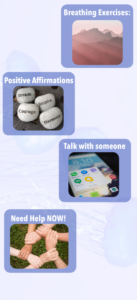
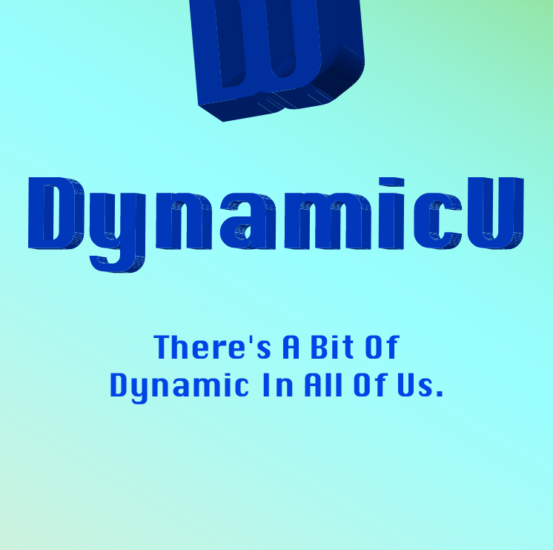
You must be logged in to post a comment.